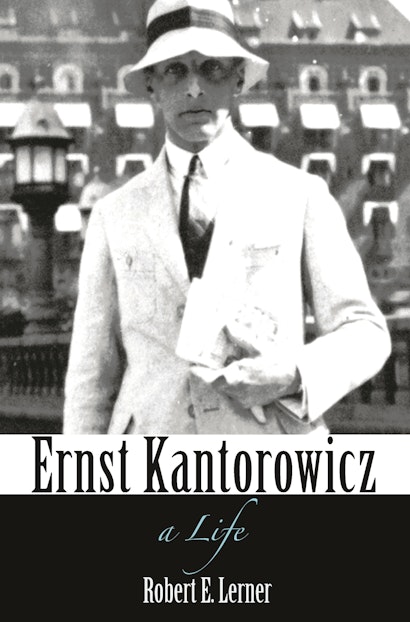我對於康托洛維茨的學術生涯充滿興趣。他的巨著《國王的兩個身體》(中文譯本60萬字)一上市,我旋即購下,正等哪天集中精力閱讀。按理說,我現在已讀畢《天使時間》,應該接續閱讀《國王的兩個身體》了,因為只有進入康托洛維茨的中世紀思想境地,與其治學和寫作風格的深刻交會,作為讀者才勉強算是讀過他的著作。
Ernst Kantorowicz: A Life
Ernst Kantorowicz: A Life
This is the first complete biography of Ernst Kantorowicz (1895–1963), an influential and controversial German-American intellectual whose colorful and dramatic life intersected with many of the great events and thinkers of his time. A medieval historian whose ideas exerted an influence far beyond his field, he is most famous for two books—a notoriously nationalistic 1927 biography of the Holy Roman Emperor Frederick II and The King’s Two Bodies (1957), a classic study of medieval politics.
Born into a wealthy Prussian-Jewish family, Kantorowicz fought on the Western Front in World War I, was wounded at Verdun, and earned an Iron Cross; later, he earned an Iron Crescent for service in Anatolia before an affair with a general’s mistress led to Kantorowicz being sent home. After the war, he fought against Poles in his native Posen, Spartacists in Berlin, and communists in Munich. An ardent German nationalist during the Weimar period, Kantorowicz became a member of the elitist Stefan George circle, which nurtured a cult of the “Secret Germany.” Yet as a professor in Frankfurt after the Nazis came to power, Kantorowicz bravely spoke out against the regime before an overflowing crowd. Narrowly avoiding arrest after Kristallnacht, he fled to England and then the United States, where he joined the faculty at Berkeley, only to be fired in 1950 for refusing to sign an anticommunist “loyalty oath.” From there, he “fell up the ladder” to Princeton’s Institute for Advanced Study, where he stayed until his death.
Drawing on many new sources, including numerous interviews and unpublished letters, Robert E. Lerner tells the story of a major intellectual whose life and times were as fascinating as his work.

沒有留言:
張貼留言